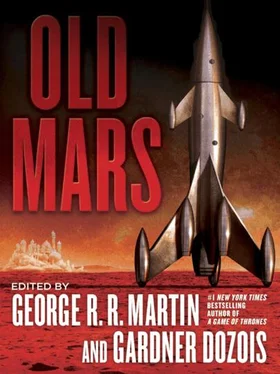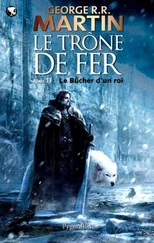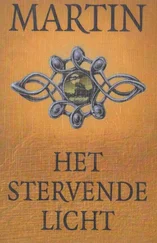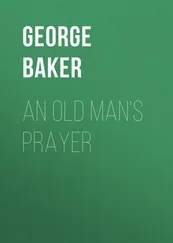There was a silence. He could imagine the crew chief digesting the information, filtering it through his undisguised dislike of the greenhorn—an impersonal dislike that extended to all the Fred Mathers of the two worlds, with their soft palms, their long words and longer sentences. He probably suspected that people like him secretly hoarded books that should have been burned on the great bonfires Bowman would remember from his childhood, when the government had cleansed the people’s minds.
At last, Bowman said, “We may have trouble getting the harvester down the ramp to the seabed tomorrow. It’s steeper than it looked. So it might not arrive on schedule.”
“Okay,” said Mather. “Doesn’t bother me.”
“But we’re all gonna be tied up with this. So if you can’t get the jeep running, nobody’s gonna come and get you.”
“Okay.”
“Or bring you any food or water.”
Mather shrugged. “I’ve got sandwiches and a gallon or so. I’ll get by.”
“You say so,” said Bowman. “I wouldn’t want to spend too long in one of those places. People have seen ghosts.”
“Ghosts don’t bother me,” said Mather. “Over and out.”
He turned off the radio and put it back in the satchel. Then he methodically finished his note-taking. All this time, he had been shielding his gaze from the figured cube. Now he took a settling breath and said, “Okay, here we go.”
He lowered his arm. The pattern seemed to reach out for him. A small, involuntary gasp escaped him, then he nodded and said, “Ah.”
It was the evening of the Touching of the Sea. He had invited neighbors to dine before they went down to the gathering above the harbor. His wife cooked meats in the house, then brought them on golden plates out into the inner courtyard, where they sat on bone chairs and drank the fruited wine from his own trees.
The conversation was relaxed and mellow. The two couples were friends as well as each other’s next-door neighbors. They talked of people they knew; the husbands compared their expectations for the coming season’s hunt up in the hills; the wives discussed the plays they planned to see—mostly timeless revivals, though there was to be a new work by a playwright from across the sea who was developing a reputation for deliberately stimulating his audiences.
When the meal was done and the last, formal toast drunk, they went down to the festival, through darkening streets lit by crystal torches and aflow with golden-eyed folk in their holiday clothes. No one wore a mask this night; it was not a time for circumspection.
The plaza by the sea was thronged. All of the town was there, the oldest given places on the steps of the surrounding buildings, the youngest on the shoulders of their parents, so that all could witness the Touching. A coterie of musicians played the festival anthem and the crowd swayed, humming to the ancient song.
As the last notes died, all of them turned toward the harbor. The boats that usually filled most of the circular basin had been rowed to the sides, tethered to bronze rings set in the stones of the moles or to each other, so that a wide channel lay open from the foot of the steps to the gap where the enclosing barriers did not meet.
One musician struck a single, plangent tone from his harp. As one, the crowd craned forward. Now a sound somewhere between a sigh and a moan rose up from each throat. It mingled and became one common note, rising not in volume but in intensity. It filled the plaza like an invisible mist, then it flowed down the steps and across the harbor and out over the sea. And carried with it a single thought.
Minutes piled upon minutes, became almost an hour, the sound continuously pouring from the crowd, the thought uniting them. Then, out beyond the harbor mouth, the waveless summer sea rippled, once, twice. A triangular-fluked tail rose and slapped the surface gently. A dark, gleaming back showed, then disappeared, only to come up once more in the channel between the boats.
The monotonous song intensified. Golden eyes shone in the torchlight. A pressure wave rolled across the surface of the basin and wet the bottom steps. As the water ran back down, the sea parted. A broad-mouthed head broke the surface, its eyes as big as dinner plates, though these were not gold but resembled silver-rimmed onyx.
The sea beast’s tail thrashed, driving its head and forefins clear of the water and up onto the harbor steps. The crowd’s moaning song grew stronger still, the carried thought more imperative. The tail went deep, scraping the floor of the basin, the sinuous body hunched and straightened, and, as water ran from its dark, striated skin back into the sea, the summoned creature forced itself higher up the stairs, until its head touched the plaza’s tiles.
Silence fell. The women took the children to join the old people, while the men descended the steps to stand on either side of the sea beast. The sky above the town was black, the stars like chips of bone. The harpist plucked another string. In one motion, the men drew their curved knives, then waited for the final note.
Fred Mather awoke to find himself in near-total darkness at the top of the steps above the dry harbor. The stars and the two small moons gave just enough light to show the bone town as a pale fog seen from the corners of his eyes, but when he looked straight ahead, he could see almost nothing. The sky was as black as it had been in the vision, but, near the horizon, he could see the small green orb that was Earth. He did not know how long he had been standing at the top of the steps, but it had been long enough for the wind off the dead seabed to chill him. Shivering, he rubbed the pebbled skin of his bare forearms.
He had to make notes. He felt his way back to the amphitheater and to the seat where he had left the satchel. His notepad was not there, but the flashlight was. By its hard beam, he found the spiral-bound book outside. It lay on the tiled surface of the plaza, covering the eye of the sea-creature mosaic. He went and retrieved it, found the pen a few feet away.
But when he sat on a doorstep to write by the flashlight’s glow, the making of ink marks on paper struck him as faintly ridiculous. The straight and curved blue lines would not always resolve themselves into words; they kept turning into mere chicken-scratchings, as if his ability to read was waxing and waning.
His mind kept going back to the vision of the festival: the death of the sea beast, the solemn taking of its flesh and the wrapping of the dripping pieces in squares of cloth the women had brought with them, the people walking home, leaving the creature’s bones to be cared for by those who had earned that honor.
And something else. He did not know how he knew it, but he was aware that this Touching had been the last, that there were no more beasts left to call. He struggled to put that knowledge into words, then transpose the words into letters of blue ink scratched onto paper. But he kept losing the knack.
Finally, he abandoned the effort and lit his way back into the amphitheater. Some instinct told him to sit in another part of the great room, facing another side of the cube. He stared into its matrix of incised lines and instantly felt himself falling into …
They were four, all friends from boyhood, now grown to maturity. They had trained hard, challenging one another, encouraging one another, daring one another. And it had paid off: They had been victorious in the annual games and had thus won the honor of being the first hunting party into the blue hills above the bone town.
They ran now in single file along a trail they had known as children, when they had played at what they now did in earnest. They knew every curve and fold of the land, the ridges, shoulders, and valleys, and they knew as well that there was a certain place where the birds sheltered through the day, emerging at dusk to light up the night sky with their scintillating streaks and fire-trails, sparks falling like red snow.
Читать дальше












